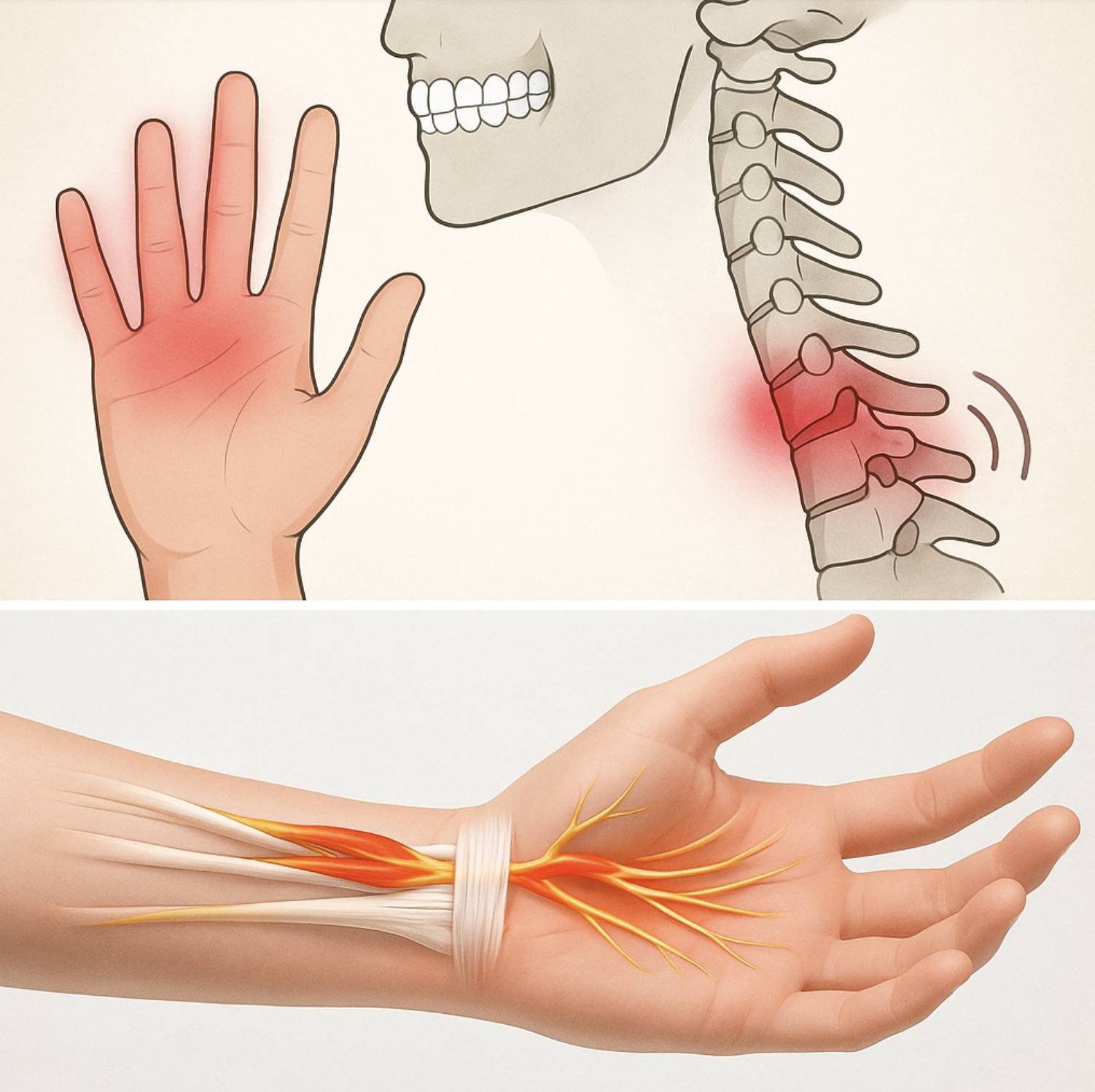It often starts with a simple discomfort: a hand that falls asleep, tingling in the fingertips, a prickling sensation comparable to small bubbles bursting under the skin. Nothing alarming on the surface. But what really happens when our hands go numb? And more importantly, when should we start to worry?
Everyday gestures: habits that can weaken hands

We use them relentlessly. Hands typing on a keyboard, peeling vegetables, holding a steering wheel or a phone… These repeated movements can tire the nerves or compress certain channels in the wrist . The result: a feeling of numbness or pain in the hand, especially after an active day.
It’s a bit like wearing a shoe that’s too tight: over time, circulation is slowed down and discomfort sets in.
Common Causes of Hand Numbness

-
Poor blood circulation
Sleeping on one arm, adopting poor posture or carrying a bag that is too heavy… All of these behaviors can slow down blood flow to the extremities . When blood circulation is poor, the nerves are no longer properly supplied, which causes temporary numbness.
-
Carpal tunnel syndrome
This common disorder occurs when the median nerve, which runs through the wrist, is compressed. It is often linked to repetitive movements or poor ergonomics. It manifests itself as nighttime tingling or difficulty holding objects upon waking.
-
Old wounds
Poorly healed fracture, internal scar, previous surgery… A past injury can revive pain and unusual sensations, especially in wet weather. It’s a bit like an old house that « works » over time: certain areas remain sensitive.
-
Certain chronic illnesses (diabetes, anemia, etc.)
These conditions can impair nerve function. For example, chronically high blood sugar can damage peripheral nerves. If you are affected, be on the lookout for any abnormal numbness.
When should you consult a healthcare professional?

Occasional numbness, after a bad night or prolonged posture, is generally not serious . On the other hand, if the sensation becomes frequent, worsens or is accompanied by signs such as loss of strength, dizziness or balance problems , it is important to consult a doctor.
These symptoms can reveal more serious pathologies: neck pain, neurological disorders such as multiple sclerosis , or more rarely a stroke . Prevention is better than neglect.
How to prevent hand numbness?

-
Adopt a suitable working posture
Make sure your wrists are aligned with your forearms. Invest in an ergonomic keyboard and an adjustable chair, especially if you work long hours in front of a screen.
-
Take active breaks
Every hour, stand up, stretch your arms, and shake your hands. This helps release nervous tension, improves circulation, and re-energizes you.
-
Move regularly
Swimming is ideal: it gently works the entire body. But if you prefer to stay at home, yoga or targeted stretching are just as beneficial for your muscles and nerves.
One last piece of advice…
If your handshake is weakening, you’re dropping things for no reason, or you feel like your hands aren’t « responsive » like they used to… Don’t let these signs pass you by. Your hands may be the first to signal that it’s time to take care of your health.
